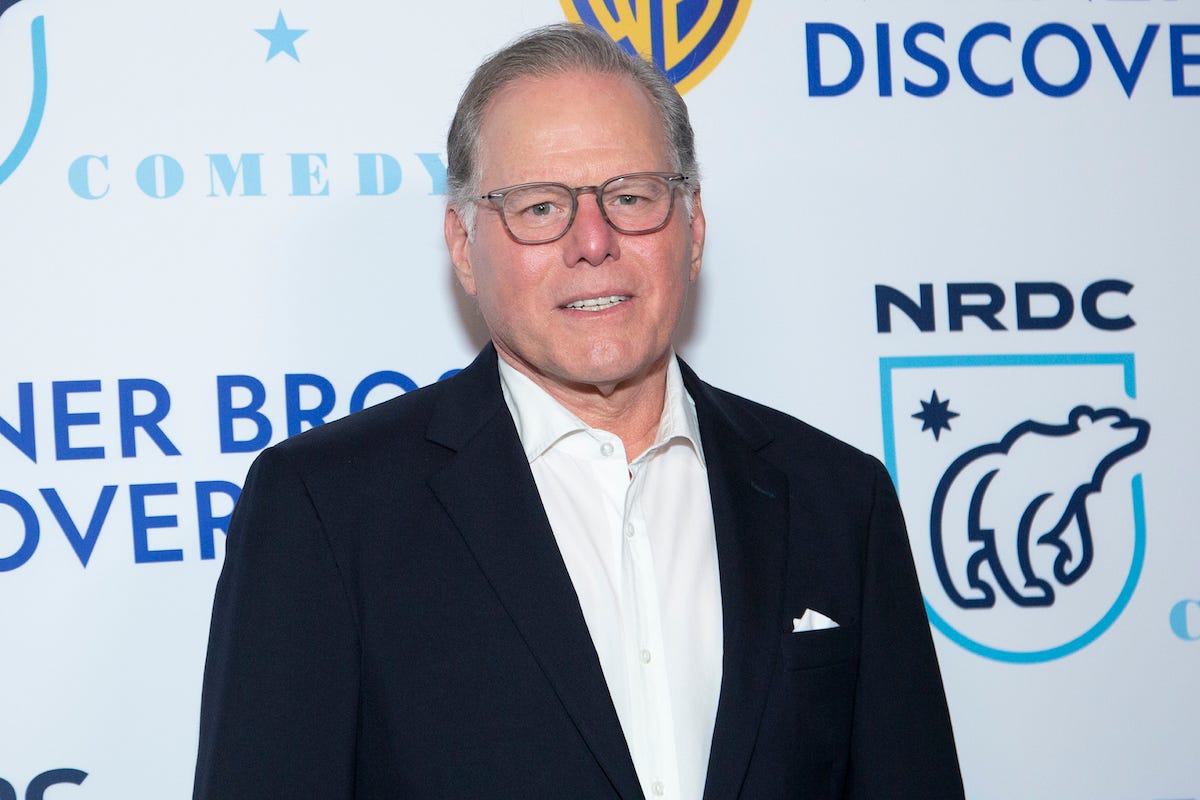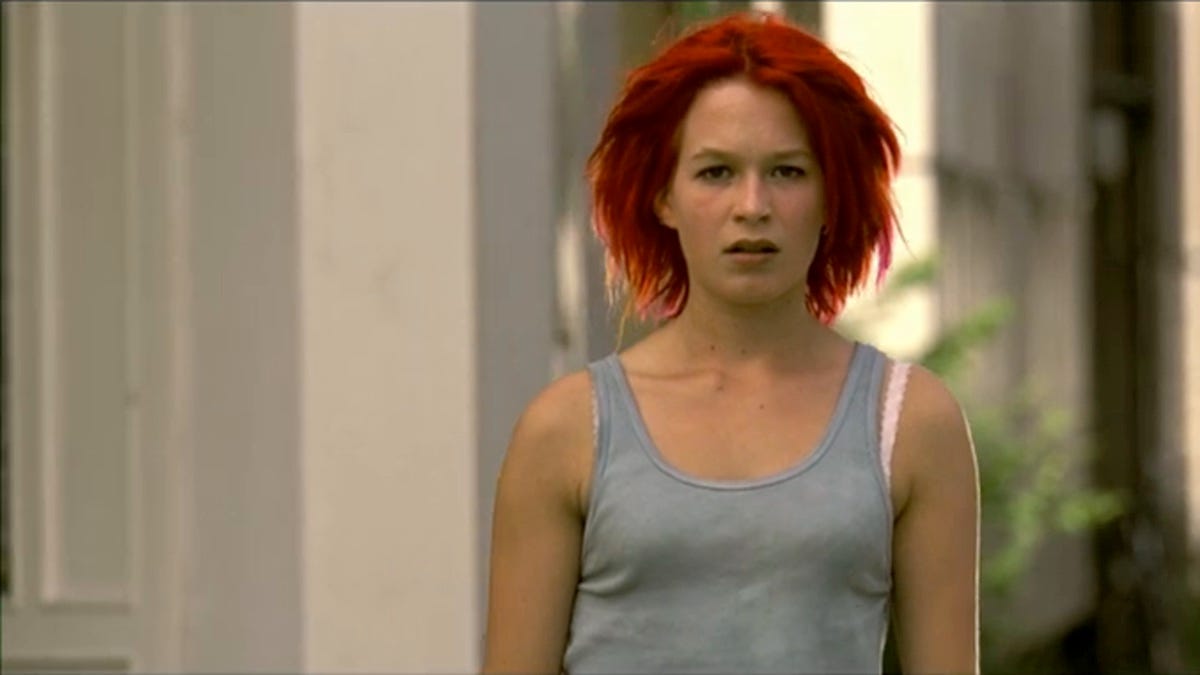Streaming Must Be a Revenue Source, not THE Revenue Source
Plus: A classic multiverse flick assigned!
Warner Bros. Discovery CEO David Zaslav would like to remind everyone yet again that he inherited a remarkable financial mess from former Warners chief Jason Kilar:
In keeping with a now all-too-familiar blame-game pattern, Zaslav made a somewhat apples-and-oranges comparison of the smaller pre-“Max” HBO, as it existed in 2019, vs. the expanded HBO Max of a year ago.
In 2019, the standalone HBO spent $2.5 billion on content and made a profit of $2.5 billion. In 2021, with the global box office in ruins, HBO Max spent almost $7 billion on content and lost $3 billion.
“I don't know if I've ever seen anything like that,” Zaslav said, “all those direct-to-streaming movies just thrown right on top.”
Zaslav has, for a while now, been doing his best Jake Blues impression: “There was an earthquake! A terrible flood! Locusts! It wasn’t my fault!” It helps that he’s … well, not wrong. At least, not entirely wrong.
The early mistake made in the streaming wars is that the studios all looked at Netflix’s absurd amounts of revenue—nearly $30 billion in 2021, or nearly three times the domestic box office and roughly two thirds of the global box office in 2019—and thought “well that should be us, we know how to make movies and TV shows.” Netflix’s insane numbers, combined with Covid shuttering theaters and the ongoing collapse of the DVD/Blu-ray market, was the signal to go all-in on streaming. Hence the boom we’ve all seen: HBO Max, Disney+, Paramount+, Peacock, etc.
The problem with this—on top of the hope that each of these studios could replicate Netflix’s first-mover advantage—is that streaming never ever made sense as a one-stop replacement for every source of revenue, Covid or no. Which meant that lots of expenditures made on streaming services were, frankly, nuts. For instance, Zaslav was pilloried for opting to take a tax write down on the almost-completed Batgirl movie. And while there are arguments against doing this for reasons that have to do with talent management—actors and directors don’t want to take the chance that a year of their life will wind up erased from a server to save a few bucks—it was almost unquestionably the right thing to do from a financial perspective.
Whoever signed off on a $90 million straight-to-streaming Batgirl movie committed corporate malfeasance; you couldn’t possibly generate $90 million worth of subs on such a project. I think it’s becoming clearer and clearer that people sign up for and stay with streaming services because of shows and that movies are, at best, a nice little bonus.
But people still go to theaters for movies:
Movies that you can use to populate your streaming service a couple of months, or even a few weeks, later. Movies people are excited to see because they have increased awareness about them because you ran a national advertising campaign for the movie during the theatrical run.
All of which is to say that streaming makes a lot of sense as a way to replace both the revenue hole left by DVD sales and the coming revenue hole that’s going to be left by cord cutters reducing the value of cable nets. And this is why I think that Warner Bros. Discovery is actually pretty well positioned going forward. They have a solid theatrical business and the one-two punch of HBO Max and Discovery+ serves as a high-brow and low-brow mix of what cable does best. Eventually they’ll figure out how to merge TBS and TNT—particularly, those networks’s sports packages, as live TV is coming to streaming sooner rather than later—and voila. A mini-cable package to rival Disney+/Hulu/ESPN+.
Zaslav is right to be vexed by some of the spending on HBO Max. But there are few companies I’d rather be heading up as we enter this new era, debt load or no.
I hope you give this week’s bonus episode of Across the Movie Aisle a listen; we’re previewing a project Alyssa’s been working on over at the Washington Post about celebrating books for kids. Given how much of a hot potato kids’ books have been recently, it’s a nice way to remember that everything needn’t be a death struggle. Check it out and leave suggestions in the comments; if we get a nice thread going there, we might highlight a few in a future episode.
And if you want to comment but haven’t signed up for Bulwark+ yet, well, now’s as good a time as any. Better, even, given the deal we’ve got running. Sign up! Unlock bonus episodes! Activate comments sections! We’re all going to have to rebuild from the Twitter rubble somewhere.
Links!
This week I reviewed The Menu, which I liked quite a bit. It’s being pitched to audiences as something like The Hunt—basically, a “Most Dangerous Game” riff—but it’s not quite that. Also, it’s a great foodie movie, at least in part because foodies come in for a beating. Fun times!
Make sure to check out this week’s Bulwark Goes to Hollywood, in which I interview Simon Abrams about his beautiful new book, The Northman: A Call to the Gods.
And if you live in NYC and haven’t seen The Northman on the big screen (my review is here, I found it knotty but fascinating), you can see it and get Simon’s book signed at the Museum of the Moving Image.
Did you now there are not one, but two, movies about Santa raising bloody hell hitting theaters this December? Christmas Bloody Christmas looks a bit like cult classic VFW (makes sense, since Joe Begos directed both) crossed with Santa’s Slay. Meanwhile, Violent Night looks like John Wick crossed with Santa Claus. Needless to say, I’m very excited to see both.
Steven Spielberg’s going to remake Bullitt, with Bradley Cooper in the Steven McQueen role? Sure, why not.
The World Cup starts on Sunday and as if to remind fans of how grotesque and corrupt it was for FIFA to give the games to a repressive desert nation, the organization reversed course two days before games got underway and decided to ban alcohol sales at games.
Assigned Viewing: Run Lola Run (Criterion Channel)
I threw this on the other night because I was looking for something short to watch, and at 75 minutes Run Lola Runqualified. One thing that sprang to mind as I was watching: this is a multiverse movie. In addition to Lola changing her fate and her boyfriend’s fate during the three segments of the movie, as she is running she encounters people and we get glimpses of their futures and how those futures change during each of her three runs.
Now, I wouldn’t have described it as a “multiverse movie” when I saw it in college 20-some years ago, which shows just how much the concept has embedded itself in the culture: from Community’s “Remedial Chaos Theory” to the MCU’s multiverse of madness to Rick and Morty to Everything Everywhere All at Once, the multiverse is, well, everywhere, all at once.







Somewhere back in the day I remember watching 'Run Lola Run' on HBO. It struck me as a cross between alternate time lines and '24' with a 'Speed' vibe.
I read the review on 'The Menu' it sounds like something where Gordon Ramsay would look at the crowd/Patrons and remark "Bloody hell, what the f___ is going on here, the food is great but the people are insane". The film sounds intriguing, I liked 'Crimes of the Future'